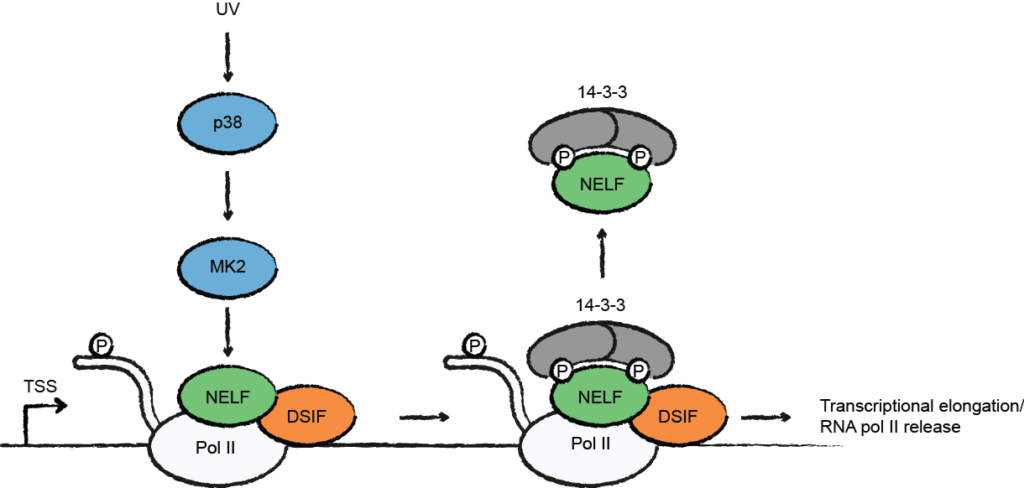Previously a member: Group Beli
Ubiquitin-proteasome system in the regulation of transcriptional elongation during UV stress response
Former Group Leader in this consortium
Petra Beli
Petra Beli is adjunct director at the Institute of Molecular Biology (IMB) and a full professor at Johannes Gutenberg-Universität Mainz. Her groups develops and employs quantitative MS-based proteomics approaches to analyze ubiquitin signaling and DNA damage response.
Petra Beli has been a DFG-funded member of our Special Research Program in the first funding period, March 2020 – February 2024.
- Institute Institute of Molecular Biology (IMB), Mainz
- Phone +49 6131 39 21590
- Mail P.Beli@imb-mainz.de
- Web https://www.imb.de/research/beli/research
Projects within consortium
Ultraviolet light (UV) triggers the formation of bulky adducts in the genome that interfere with transcription. As consequence, cellular response to UV stress involves multifaceted mechanisms that regulate RNAPII-dependent transcriptional initiation and elongation. In this project, we seek to obtain a better understanding of targeted protein degradation events that regulate transcriptional elongation during UV stress response and thereby protect human cells from genomic instability arising from exposure to UV light.
Ultraviolet light (UV) triggers the formation of bulky adducts in the genome that interfere with transcription. Failure to repair these DNA lesions due to somatic or inherited mutations in nucleotide excision repair (NER) factors leads to accumulation of mutations and human syndromes including cancer and premature aging. We have recently shown that UV light promotes the release of the paused RNA polymerase II (RNAPII) from promoter-proximal sites through a mechanism that involves the dissociation of the negative elongation factor (NELF) complex from chromatin. This rapid release of paused RNAPII promotes the repair of UV-induced DNA lesions and hence protects the cells from genomic instability.
In this project, we will combine mass spectrometry (MS)-based proteomics, genomics and biochemical approaches to define the interplay between the ubiquitin proteasome system (UPS) and NELF-dependent regulation of transcriptional elongation during UV stress response. In particular, we will investigate the UPS-dependent mechanisms that regulate NELF complex turnover on chromatin in response to UV. The results of this project will deliver insights into the role of UPS and targeted protein degradation in the regulation of chromatin-associated protein complexes and transcription during stress response

Regulation of the NELF complex in response to UV stress. NELF complex is phosphorylated by p38-MK2 in response to UV stress. NELF phosphorylation recruits 14-3-3 and results in NELF complex dissociation from chromatin that is accompanied by RNAPII elongation
Project members
-
PhD Student
Christian Blum
Former SFB Member (until Feb 2024)
Targeted Protein Degradation related publications by Previously a member: Group Beli
- 2024 Tau fibrils evade autophagy by excessive p62 coating and TAX1BP1 exclusion Science Advances Go to publication →